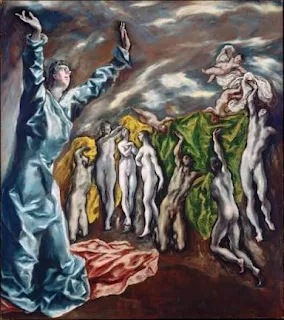Israel Centeno
Sunday is approaching, and I have decided to write something confessional. I have reached an age where death is no longer a distant appointment but an imminent possibility. There is no drama in this; it is simply the awareness that, at almost 67 years old, if I were to die today, no one would say, “He was taken too soon.” Just a few decades ago, reaching this age was an achievement.
When I was young, I rejected death because I was full of life. I lived with the feeling that every moment had to be squeezed to the last drop. I wanted to devour the world, transform the dull into the extraordinary, experience everything without restraint. Death was not a concern because, deep down, I believed it was a remote, almost illusory possibility. A fallacy, yes, but a functional one.
Now the situation has changed. My relationship with death is no longer one of rejection but of expectation and hope. Yet there is a small demon in my head whispering: What if it’s not true? Despite years dedicated to philosophy, despite delving into phenomenology and unraveling the riddles of thought, my conviction sometimes wavers. I understand the contingency of all created things, the absence of a sufficient cause in the tangible world, the impossibility of pure causality without potency. These certainties once gave me strength, even a sense of perpetuity—until I noticed how my own mutability had accelerated in recent years.
If a sufficient cause exists, it must be linked to a personal relationship between an infinite being and His finite creature. But what a puzzle. If everything has been revealed and it is so simple, why do we complicate our lives? They say that faith must be defended with reason and that hope must withstand the test of logic. But we forget that faith itself rests on mysteries. We cannot interpret the mind of God, and yet, we know that He loves us. But do we love Him enough?
This unease grips me when I think about crossing the threshold. Will I die in pain? Will I be able to remember who I am? It is at that moment of absolute vulnerability that faith is challenged. That is when I pray and ask: Lord, is it true? And I look for signs.
I go before the Blessed Sacrament and gaze at it, trying to grasp eternity. The church I attend lets in a cold breeze even in winter. I don’t know where the air sneaks in from, but I have entertained the fantasy that the Holy Spirit moves swiftly through during the offering. And in the midst of all these questions and tribulations, instead of receiving an answer, I feel a voice challenging me: Why does it always have to be about you?
I would like to deceive myself and say that my search is out of love for apologetics, that I need arguments to defend the faith. But God is not fooled. He knows all my tricks. And the truth is, I am afraid. Not of death itself, but of uncertainty. I want to be reassured about what I already know. And that is a failing.
“Whoever believes in me, even though he dies, will live.” It was a promise. Not made by a philosopher, nor a political leader, nor a visionary mystic. It was the promise of the one who conquered death—the only one in all human history who, according to witnesses, rose from the dead and ascended into heaven.
And if faith is built upon mystery, why should the nature of the universe be any different? Light, gravity, matter, elementary particles—everything we call reality—is an enigma that will likely remain forever indecipherable to the finite mind. No matter how many equations are formulated, how many experiments are replicated, how many artificial intelligences are created, they will always be the product of limited thought, a reflection of contingent intelligence. No machine will ever unravel the absolute, because its very essence will always be that of the contingent.
And while I wrestle with certainties and doubts, between faith and fear, I lift my gaze and see a broken world. A world made by broken men.
The Pope lies convalescent in his sickbed. Christians are beheaded in Congo by a group affiliated with ISIS. Senseless wars multiply, hatred spreads like a plague, cruelty becomes spectacle. Barbarism no longer shocks us, and the suffering of others blends into the background noise. And in the midst of this scene, one question becomes inevitable: Are we truly redeemable?
At the end of the day, it was for this, too, that He was lifted upon the wood, after enduring torture and humiliation.
No, this is not just about me and my questions about death. It is about the world—this disaster of a civilization crying out for redemption.



